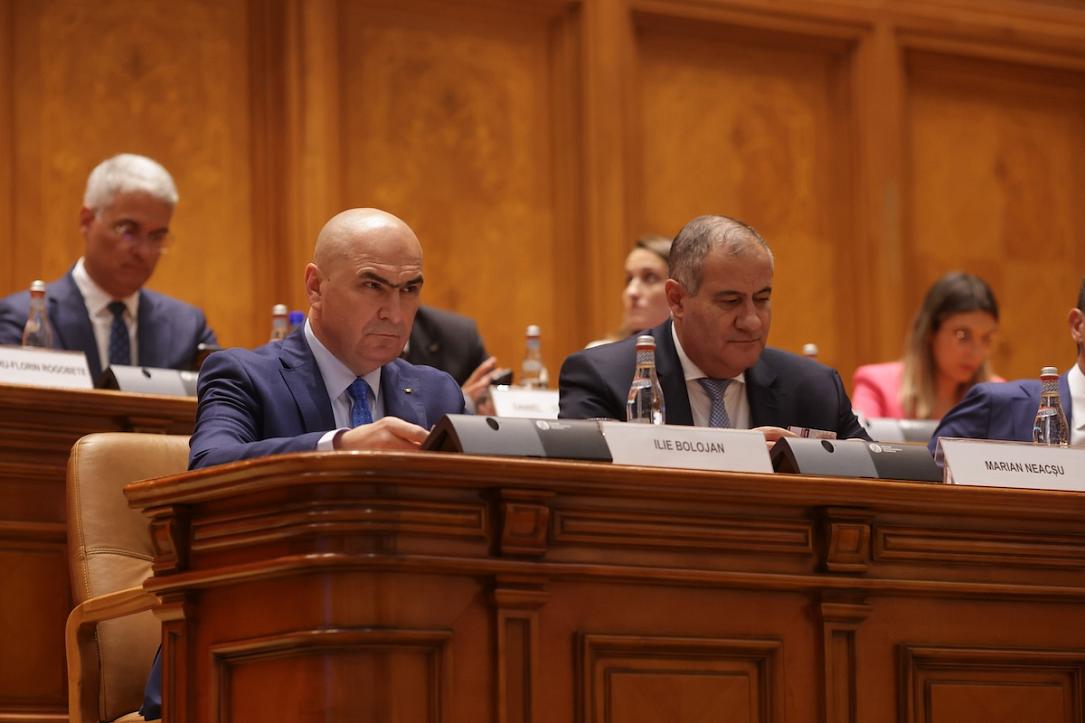Prime Minister Ilie Bolojan has officially assumed responsibility for a fiscal package that includes significant tax hikes and public sector austerity measures, which will be presented to Parliament.
A key feature of this reform is the increase in VAT from 19% to 21%, alongside a freeze on public sector wages and pensions in 2026.
The proposed package has sparked strong resistance, with union-led protests outside Parliament and a no-confidence motion announced by opposition parties. PM Bolojan described the legislation as a national emergency and another step towards economic recovery. “This package is just the beginning. If Romania is downgraded, we will face higher taxes, higher prices, lower purchasing power, and increased interest rates.”
Key Measures and Last-Minute Amendments
The final version of the package includes a new 16% dividend tax and a 2% turnover tax for banks, applicable from July to December 2026. Also, pensioners receiving over 3,000 lei per month will pay health contributions on the excess amount until 2028. Significant amendments were also made last minute, with the reinstatement of a 700 lei scholarship for the education of minor mothers, provided they attend classes. The scholarship was initially removed, leaving these students with only a basic social grant.
Tax increases targeting the gambling industry were also included. Taxes for online gambling operators rose from 21% to 27% of revenues, while betting operators saw a hike from 21% to 23%. A new 6.5% tax was also introduced on lottery revenues. The tax on slot machines increased from €5,300 to €5,800 per machine, and the vice tax was doubled from €500 to €1,000.
Bolojan’s High-Stakes Commitment
Despite the growing public discontent, Bolojan stood firm in his decision. “Everything I said will happen. Otherwise, I will no longer be Prime Minister,” he declared.
He addressed criticism that the government was burdening the vulnerable while protecting political allies, as these measures aim to correct existing imbalances.
A second legislative package is expected by the end of July, focusing on the removal of special pension exceptions, reforming state-owned companies, and increasing transparency in public institutions. The government also intends to digitize public services and crack down on tax evasion.
Path Toward Stability and Reform
While acknowledging the unpopularity of the measures, Bolojan stated their importance for long-term stability. “We are fully aware these measures will be felt in the daily lives of many of our fellow citizens. But we view the consequences with responsibility and solidarity,” he said.
The Prime Minister concluded with a call for unity, urging opposition parties to contribute constructively rather than obstruct the reform. He believes that these changes are key to ensuring sustainable growth in Romania.

 Companies
Companies 





